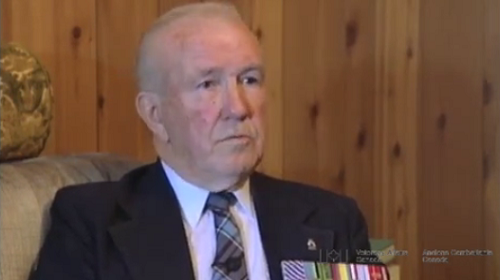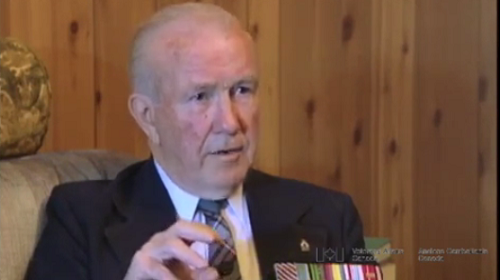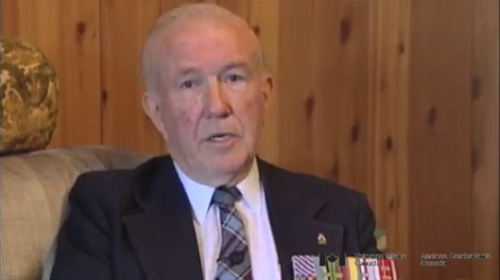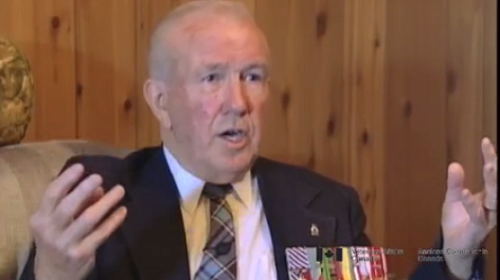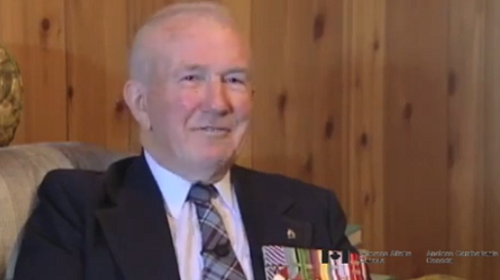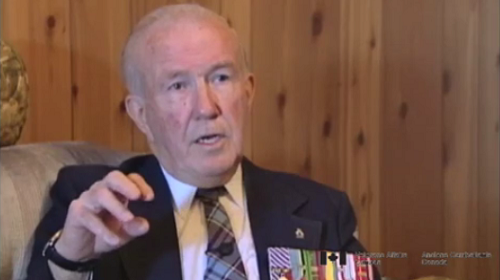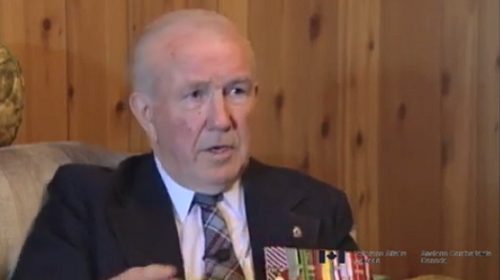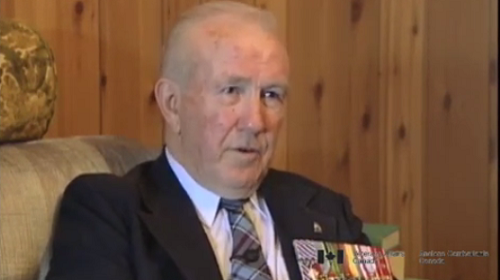A Very Close Call
Heroes Remember
A Very Close Call
Transcript
Description
Mr. Warren's Spitfire is struck by shrapnel or ack-ack, leaving a hole in the cockpit and him with a numb leg. He jettisons his bombs and returns to base. Smelling something burning, his investigation finds a piece of molten metal in a tin box in his tunic pocket. During this clip, Mr. Warren also explains why Spitfire pilots seldom ejected if their plane was shot down.
Douglas Warren
Douglas Warren was born on May 28, 1922 in Nanton, Alberta. His father, a farmer, was an isolationist emigrant from the United States. One of four children, Mr. Warren had an identical twin brother with whom he was very close. They had always wanted to fly, and enlisted in the Air Force in 1940. Mr. Warren completed his pilot training in High River, Alberta. Once overseas, he joined #165 Spitfire Squadron in Ayr, Scotland, and was involved in the air battle during the Dieppe Raid, as well as later flying cover on bombing raids. He then joined #66 Squadron at Falaise, France, flying the new SpitfireMK9B in ground attack operations. Mr. Warren was awarded the Distinguished Flying Cross. After the war, Mr. Warren's exemplary career continued after permanently joining the RCAF. He became Fighter Leader for Canada's Meteor Jet Squadron, served in the Korean War, was a NATO pilot instructor in Germany, and served time with NORAD. Mr. Warren eventually became Assistant Base Commander at Comox from where he retired with the rank of Wing Commander.
Meta Data
- Medium:
- Video
- Owner:
- Veterans Affairs Canada
- Recorded:
- May 7, 1999
- Duration:
- 3:02
- Person Interviewed:
- Douglas Warren
- War, Conflict or Mission:
- Second World War
- Location/Theatre:
- England
- Branch:
- Air Force
- Units/Ship:
- 166 Squadron
- Rank:
- Wing Commander
- Occupation:
- Pilot
Related Videos
- Date modified:



